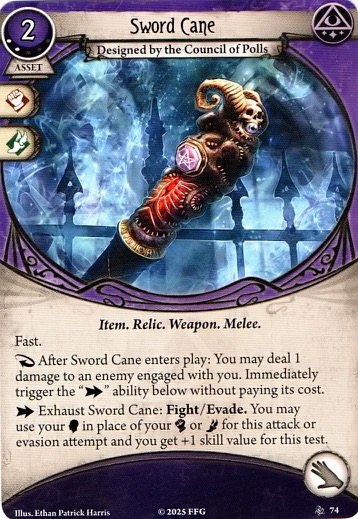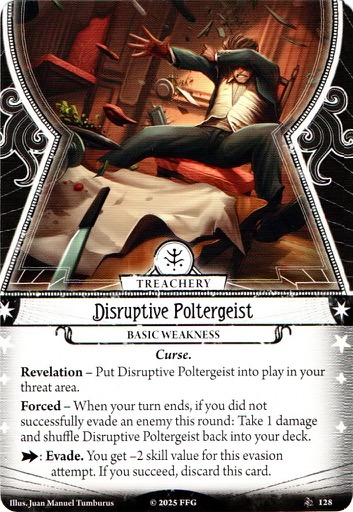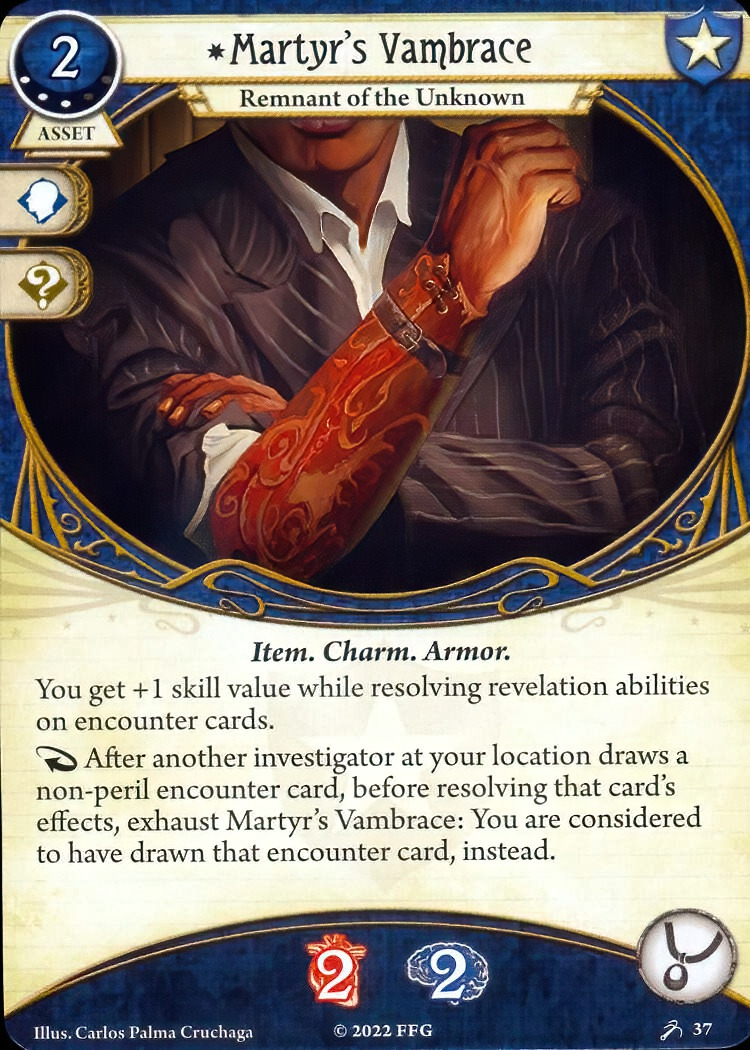
I'm surprised there isn't a review for this card, so I'll write my first one!
So, for 2 XP the card becomes fast, you get a free damage on an engaged enemy, AND you get +1 Skill Value on the test. It might seem a little lackluster on the surface level, but in reality... It's pretty good. It gaining fast makes it a big action saver, as when you play it you essentially get 3 actions (Playing it, the damage, and using it without exhausting). Meanwhile with Sword Cane you play it for one of your 3 actions and activate it's ability. I don't know about you, but I like getting some more bang for my XP.
I'd also like to point out that playing it basically is like using a Shrivelling charge as you get a free damage (who doesn't like free damage?) and the free attack from playing it, with an extra skill value. The extra skill value aspect of the card is also something not to scoff at. I mean, who doesn't like a boost when their testing?
This card is also a huge helper for mystics who may not have enough resources for their spells, or ran out of charges like Dexter Drake and Gloria Goldberg, while also being a handy card for other investigators like Norman Withers. Other reviews on Sword Cane also just apply to this card, with typically unused hand slots and is a good alternative if an enemy has 1 health left so you don't need to waste your charges! This card can definitely be a good upgrade at any point of a playthrough and should be considered if running Sword Cane!




